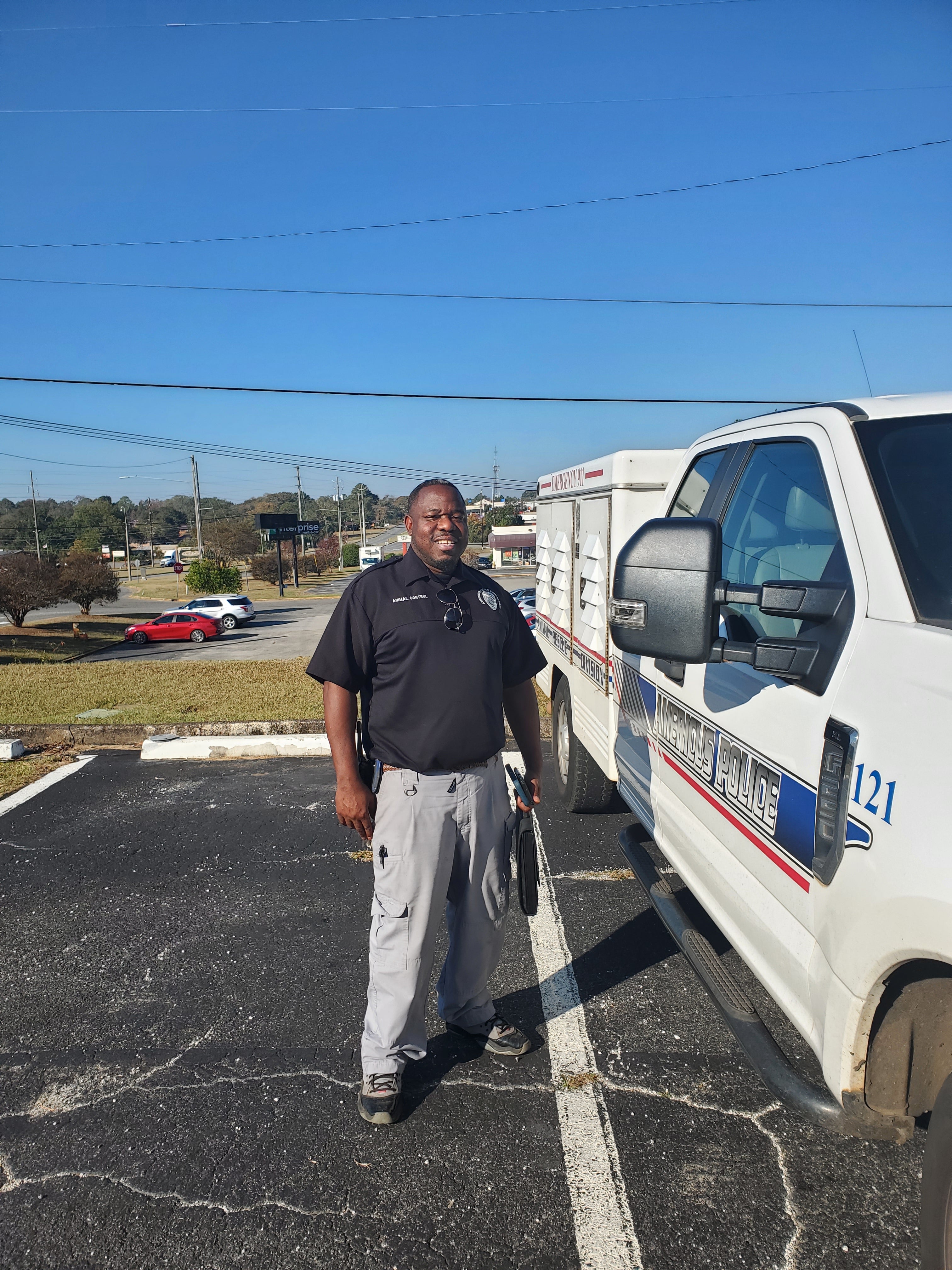A conversation with Animal Control Officer, George Carter
Published 11:57 am Tuesday, November 8, 2022

- George Carter is looking out for you and our furry friends
|
Getting your Trinity Audio player ready...
|
Tracy K. Hall
George Carter has a definite role to play in our community. Just like our neighbors and our law enforcement officers keep an eye out for us, George does as well. But George’s vision is sharply tuned to our furry friends. He is passionate about the care our animal friends receive and he is also intentional about making sure our neighborhoods are safe for pets, strays and people alike. There are a few things George would like you to know about his work and our role in maintaining a healthy community.
When speaking of the most common kinds of pets, dogs and cats, they are classified as strays or having homes. When a stray has no one else to look after them, George comes through on their behalf. But he needs our help. What George needs out of our community is very similar to what our law enforcement needs out of us. If you spot a stray, call immediately. If you post on social media, or simply wait a few hours before reporting the animal, the chances George will be able to assist, goes down.
George works 8am until 5pm on workdays. However, if you spot a suspicious animal situation outside of working hours, call Americus Police Department (APD) at 229.924.3677. For non-emergency dispatch, please call 229.937.9011. Often times APD will ensure our neighbors are safe, but they depend upon George’s expertise to handle the animal. Once George reports to work, he is given the report and he will have eyes out for the animal. If you spot an animal which might need George’s assistance, you can call him during work hours at 229.815.9303. As George says, “communication is key.”
What can George do when an animal appears neglected or is in danger? If he can see the dog, he can check on him. Communication is of utmost importance to coming to a solution, but it is not the final step. If George is told of an animal in distress, he has to follow the law, and in the eyes of the law, if the animal is not a stray, it is property. Just as law enforcement can’t seize personal property without meeting legal requirements, George cannot seize an animal until a process has taken place. Once he is aware of a pet in possible danger, he approaches the owner. With permission, George can look for evidence of sufficient food and water. He can also do a rudimentary physical to see if there is any evidence the animal is sick or mistreated. George sees educating an owner as vital work. Sometimes the owner is simply unaware of what is required of him/her. After education, George allows 2-4 weeks for the owner to make positive changes on behalf of their pet. After the time passes, if the owner has made no effort to apply the knowledge George has imparted, he is allowed to cite the owner and take the pet. The owner can find himself with a citation and end up in city court in front of a judge. George says a $300 fine is not unusual and the judge has the right to terminate rights to the pet as well as ban the owner from having another pet for a determined amount of time. In the case of felony animal cruelty, the judge can sentence the owner to jail time.
What George would like all owners of dogs to know is that if the dog leaves your property he must be on a leash or in a crate. This is for the safety of both our neighbors and the dog. George suggests if you are even in your yard, perhaps giving your dog a bathroom break, put him on a leash. Dogs are curious by nature, and it is not unusual for them to break away in pursuit of a squirrel, a person or even a car. Leash requirements are a city ordinance, and they are to protect the entire community.
From time to time a pet goes missing. Perhaps your pup jumped the fence, or just wandered further than they typically do. Again, don’t let social media be the only way of asking for help. Other than an owner, George is likely your best eyes for trying to bring a pet back home. He intentionally is looking for animals on his patrols. He can be of great assistance. Putting George in the loop also lessens the chance a fine will ever be given. On a similar note, if you happen to spot what looks like someone’s pet, give George a call. He can be helpful on getting him home.
If for some reason, you decide it is best the euthanize your pet, then to do so is the owner’s responsibility. George nor the Humane Society do this. If you would like to surrender your pet, the Humane Society has a process to follow for consideration. It is not allowable to leave your animals on the doorstep of the Humane Society or at APD. George wants it known the Human Society is not mandated to accept animals, your personal one, or a stray. Sometimes there is not room to house an animal and thus the Humane Society is unable to take them on. Along the same lines, the Humane Society does not pick up animals.
There is an additional responsibility George has. When an animal has died on public property within the city, he has the duty to remove the animal. George finds this his least favorite task. He reports the sanitation department will assist if they happen to run across a dead animal in their travels, but he is the one to call if an animal needs to be removed. George does not remove deer. As with other situations, the sooner George is able to receive the call, the better.
George will also trap cats when traps are available. He will also address snakes in the house. George is a great resource for our community. He is passionate about his work. Get to know him and utilize his skills to make our community great for people and animals alike.
So, top tips:
- See something, say something. But say it quickly and to the right person. During work hours it will be addressed as soon as possible, after work hours, APD can assist and will ensure George is aware when his next shift starts.
- Obey the leash ordinances.
- If George is able to see an animal in distress on private property, he has a right to investigate it.
- There is a process, it starts with communication, moves to investigation, leads into education and as a last resort, removals, citations and court appearances take place.
- Please remember pets are property and must be treated as such. They can not be seized without following protocol.
- When you call dispatch, be aware those calls are recorded. Think twice before threatening to kill an animal and remember discharging a firearm in the city limits is illegal.
- When your pet goes missing, or you see a missing pet, contact George so he can be aware and provide assistance.
- Your pet must be up to date on rabies shots. Rabies shots must be administered by a professional.
- The Sumter Humane Society does not retrieve animals. They also reserve the right to decline acceptance animals.
- Euthanizing a pet is the responsibility of the owner.
- Just as you wouldn’t report a suspicious person three hours after a sighting, don’t wait to report suspicious animal situations three hours afterwards either.
- Surrendering your animals is also a process. It is not correct form to leave your animal on the doorsteps of law enforcement agencies or the Sumter Humane Society.
- Spay or neuter your pets. The Sumter Humane Society has a program which does this after an application process is completed.




